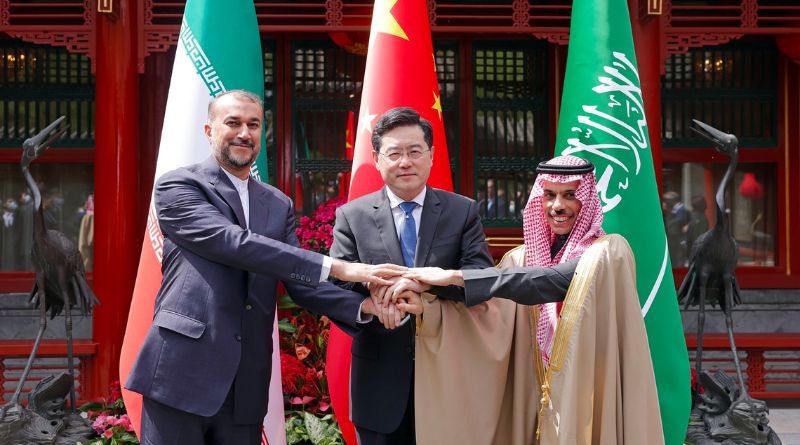Saudi Foreign Minister Prince Faisal bin Farhan has met his Iranian counterpart Hossein Amir Abdullahian in China’s capital Beijing.
An agreement was signed between the two foreign ministers to improve mutual diplomatic relations.
In the meeting, measures to reopen the embassies of Saudi Arabia and Iran were also discussed.
The meeting was also attended by the ambassadors of the two countries and other top officials in China. It was the first official meeting of the top diplomats of the two countries in more than seven years.
Read also : The Israeli Police Attack on Al-Aqsa Mosque is unacceptable, President Erdogan
After the meeting of the two leaders, a joint statement has also been issued according to which the two countries have agreed to restore mutual embassies and consulates. According to Chinese media, the Saudi and Iranian foreign ministers also met with the Chinese counterpart. After the meeting between the two foreign ministers, the visit of the Iranian president to Saudi Arabia is expected.
In this regard, the Vice President of Iran has said that Iranian President Ibrahim Raisi has accepted the invitation of Saudi King Salman to visit.
It should be noted that last month, Saudi Arabia and Iran agreed to end the diplomatic tension and reopen their embassies through the mediation of China.
Iran-Saudi agreement has disturbed the US.
The decline of American influence in the Middle East and the growing influence of China are marking the formation of a new bloc.
China’s growing role in the Middle East has worried Washington. That same month, Beijing brokered a historic deal between Iran and Saudi Arabia that could significantly help ease tensions in the Middle East. Saudi Arabia also markedly strengthened its energy ties with China by announcing a $3.6 billion deal to buy 10 percent of China’s Rongsheng Petrochemical, giving the company 480,000 barrels per day, will provide crude oil.
Analysts say that as America’s cold relations with China and Russia intensify, Saudi Arabia and other Middle Eastern countries are choosing to diversify their global partnerships.
